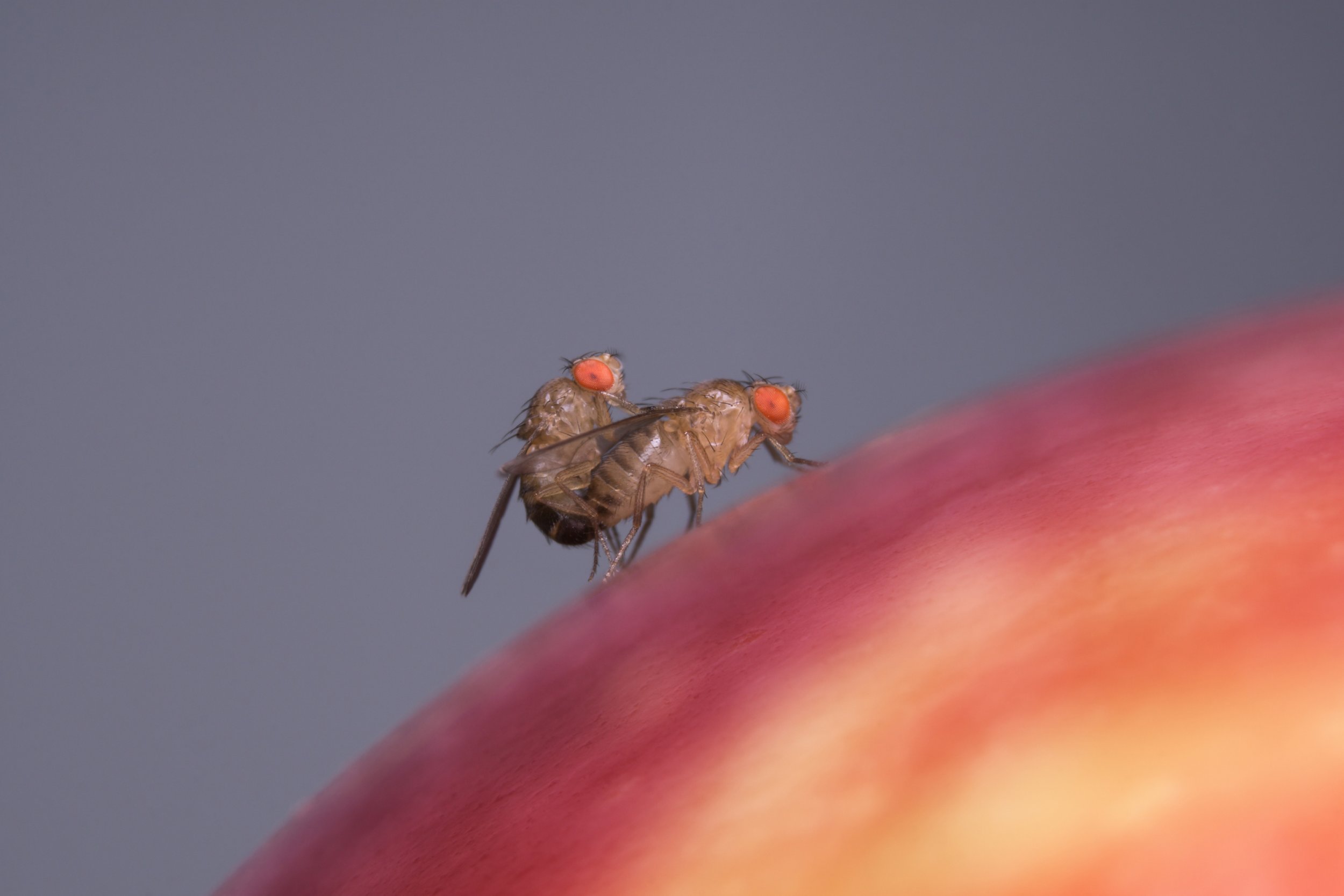
It's not surprising that the smell of food can be incredibly powerful. It can make your mouth water or help sell your home—or, if you're a virgin female fruit fly, it can increase your interest in that handsome male fruit fly trying to win you over.
According to a study published today in the journal Proceedings of the National Academy of Sciences, that connection is rooted in how female fruit flies' brains are wired. The finding confirms one of the very first examples of receptors for two different scents (those of food and male fruit flies) being scientifically linked in the brain.
"Notably, a synergistic interaction of two odors is extremely rare and has hardly been observed so far," senior author Silke Sachse, a chemical ecologist at the Max Planck Institute in Germany wrote in a statement provided to Newsweek.
But of course, if you look at it from a female fruit fly's perspective, the connection is a valuable survival mechanism: If that male is successful and she lays eggs, she's going to want a food source nearby to give her offspring the best start in life.
The scientists looked at fruit fly responses to two compounds: vinegar, a stand-in for rotting fruit, which is the flies' favorite food, and cis-vaccenyl acetate, an airborne chemical produced by male flies. Scientists already knew this male perfume affects social behavior—it causes gatherings of flies and makes other males more aggressive.
The team looked at three different groups of flies: males, virgin females and mated females, and they also enlisted special flies that were bred to lack certain nerve connections. That let the team identify certain behavior differences with specific brain signaling pathways.
That's a manageable task in fruit flies because they're a favorite lab animal of scientists, who have mapped most of the brain regions that process scents. "Among several thousands of neurons present in the fly brain, we could pinpoint the particular neurons responsible to mediate the interaction of food odor and sex pheromone," lead author Sudeshna Das, a chemical ecologist at the Max Planck Institute in Germany wrote in a statement provided to Newsweek.
They found that virgin females were significantly more interested in the combination of the male hormone and vinegar than they were in just the male hormone. Males and mated females didn't respond any differently than usual.
"This mechanism is highly useful, since it promotes mating in females when food is present: that is, when the nutritional supply of the female and its offspring is guaranteed," the authors write in the paper.
And really, who can blame them?
Uncommon Knowledge
Newsweek is committed to challenging conventional wisdom and finding connections in the search for common ground.
Newsweek is committed to challenging conventional wisdom and finding connections in the search for common ground.
About the writer
Meghan Bartels is a science journalist based in New York City who covers the science happening on the surface of ... Read more
To read how Newsweek uses AI as a newsroom tool, Click here.








